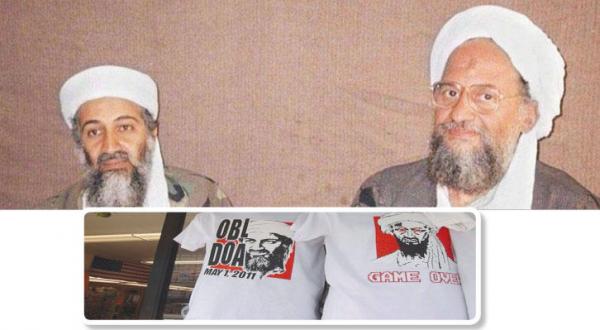At the fifth anniversary of the death of Osama bin Laden, President Barack Obama said that he hopes the terror mastermind understood in his final moments that the ‘American people hadn’t forgotten’ and wanted revenge for the atrocities of September 11, 2001.
Obama spoke to CNN’s Peter Bergen about the raid that killed the Al-Qaeda leader on May 2, 2011, almost 10 years after the terror attacks that killed nearly 3,000 people.
Bergen’s exclusive interview marked the first time Obama has sat down with a journalist in the Situation Room.
During the interview titled as “We Got Him: President Obama, Bin Laden and the Future of the War on Terror”, Bergen said that “the last person bin Laden saw on Earth was an American.”
Obama replied:“And hopefully, at that moment, he understood that the American people hadn’t forgotten the some 3,000 people whom he killed.”
Obama’s administration said the raid is evidence that despite the President’s caution about foreign engagement, he isn’t loathe to act forcefully on behalf of American interests and pursue aggressive action against terrorists.
In 2015th celebration, Obama inaugurated a memorial in Pennsylvania, where the fourth hijacked airplane, which was thought to be heading towards the congress or the White House, was crashed.
Obama participated in the prayers for the souls of the victims at the memorial place close to the towers that collapsed after the attack.
Back then, Barack Obama started his day at the White House where he stood one minute of silence at 8:40 a.m., the time when the first tower was hit in 2001. The U.S. President was surrounded by the First Lady Michelle Obama and the White House Staff.
Later on, he headed to Fort Meade military base in Maryland, where he delivered a speech and praised the efforts made by the armed forces in their war against terrorism. Obama, then, travelled to Pennsylvania to inaugurate the fourth plane’s memorial.
For his part, Jean-Pierre Filiu, a Paris-based expert on Islam and jihadist groups, said ISIS has been especially effective at using new technology to surpass its less tech-savvy rival.
“Al-Qaeda propaganda has become invisible on social networks thanks to the media war machine that ISIS has managed to successfully create,” Filiu said.
“Al-Qaeda has lost everywhere to ISIS, except in the Sahel desert region of northern Africa,” he said.
On the other hand, William McCants, of the Brookings Institution in Washington, agreed that Al-Qaeda had lost some ground to ISIS, but said the organization has recovered.
“Al-Qaeda has a strong showing in Syria and in Yemen,” he said.
In Syria the group’s local affiliate, Al-Nusra Front, is one of the strongest forces fighting President Bashar al-Assad’s regime, holding large parts of the northern province of Idlib.
The local branch in Yemen, Al-Qaeda in the Arabian Peninsula (AQAP), has meanwhile seized significant territory in the south and southeast as the government struggles against Iran-backed Shiite insurgents who have taken the capital Sanaa and other areas.
However, AQAP remains the key jihadist force in Yemen with thousands of members compared with only several hundred affiliated with ISIS, McCants added.
